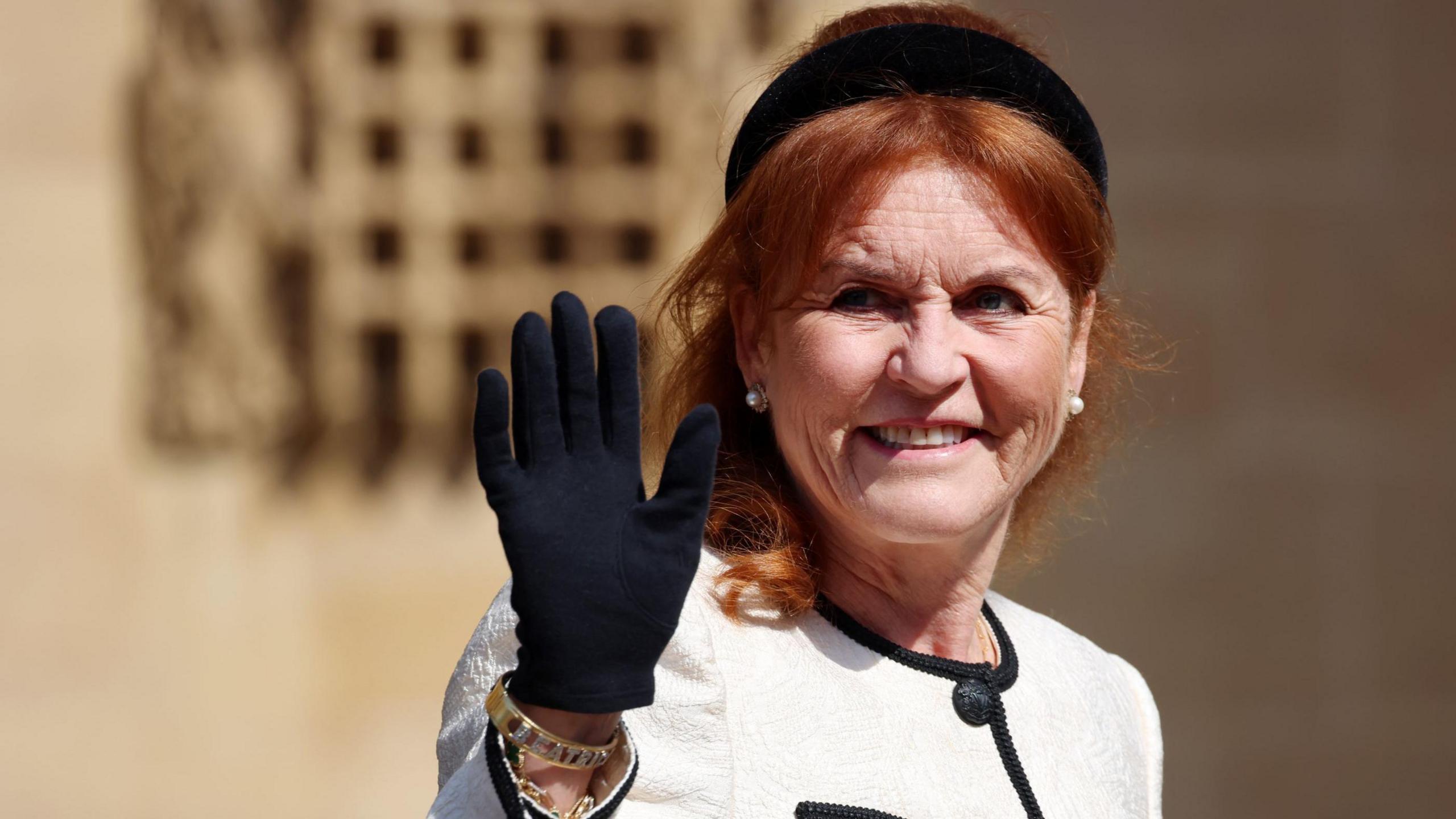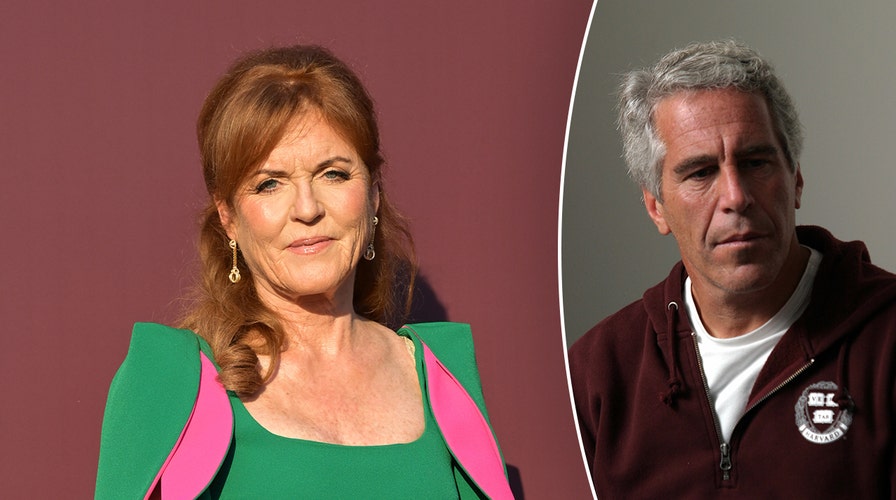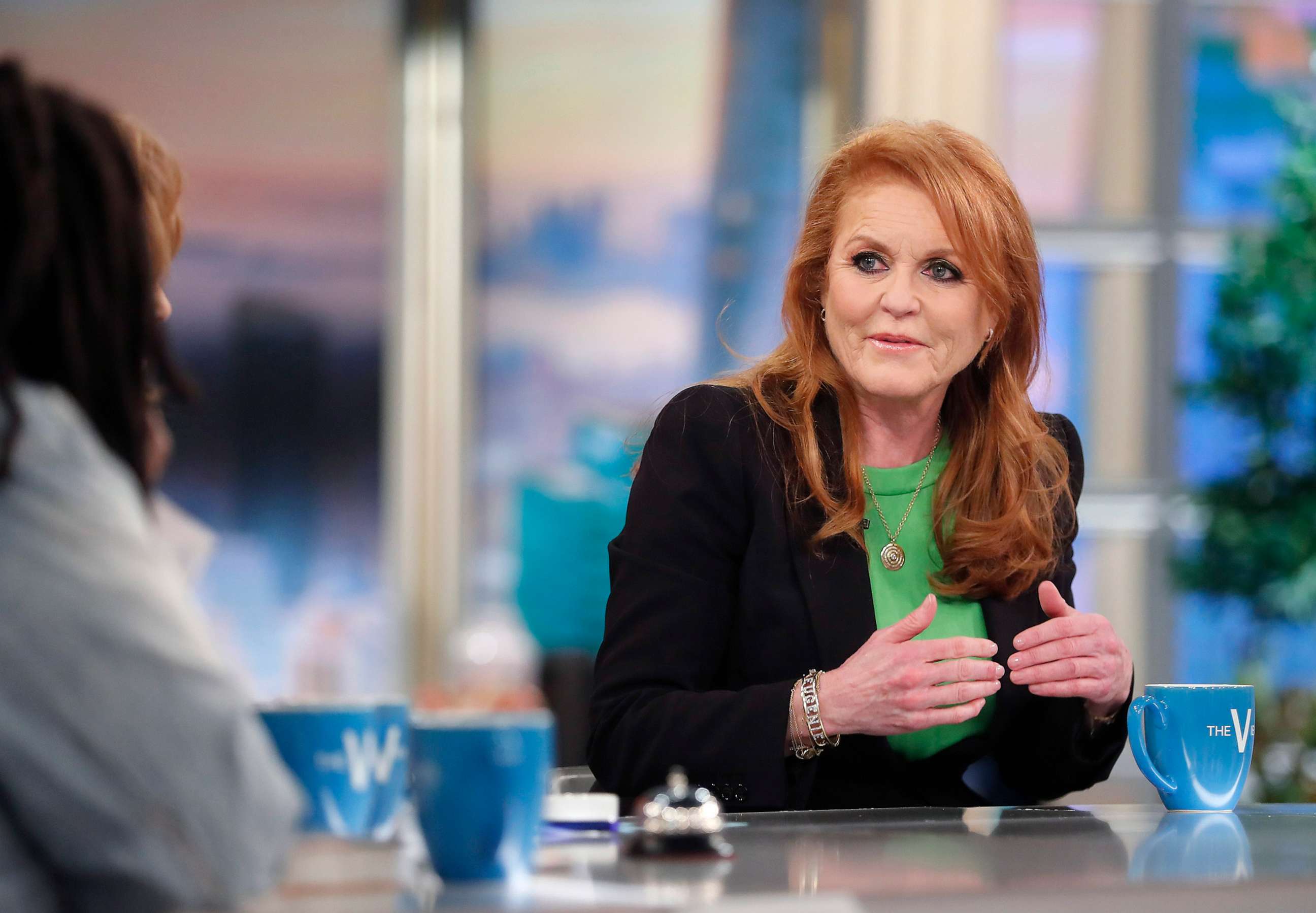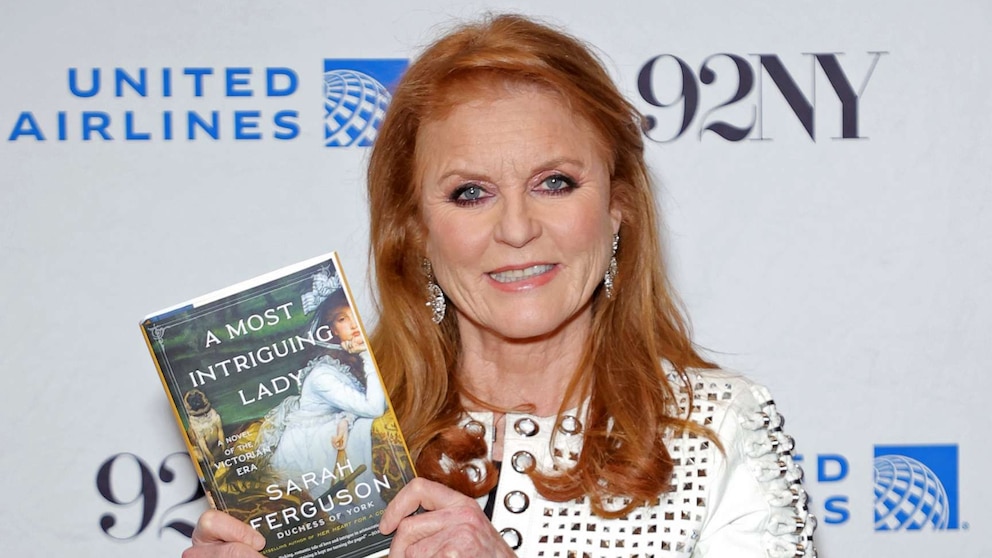The British royal family, recently having concluded a period of significant public engagements, finds itself once again embroiled in controversy, as new revelations concerning Sarah Ferguson, the Duchess of York, bring renewed scrutiny to its ties with the late convicted sex offender Jeffrey Epstein. Following the publication of emails that reportedly show Ferguson describing Epstein as a “supreme friend,” a number of charities have swiftly moved to sever their associations with Prince Andrew’s ex-wife, highlighting the profound ethical and reputational damage these connections continue to inflict.
These disclosures follow a period of intense examination of royal links to Epstein, which have previously centered largely on Prince Andrew himself. The emergence of Ferguson’s correspondence adds a new dimension to this ongoing saga, casting a critical light on her judgment and consistency in publicly distancing herself from the disgraced financier. The detailed reporting of her private communications reveals a complex interplay of public apologies and private reassurances, suggesting a strategic navigation of scandal rather than genuine contrition.
The unfolding events underscore the enduring impact of Epstein’s network, which extended into prominent social and royal circles, even after his initial conviction for sex offenses. For a monarchy that relies heavily on public trust and moral authority, the continued entanglement with such a figure represents a significant challenge to its image and credibility. This in-depth analysis will dissect the key facets of these recent revelations, starting with the immediate fallout and moving through the layers of conflicting statements, financial dealings, and underlying motivations.

1. **The Immediate Fallout: Charities Severing Ties with Sarah Ferguson**The most immediate and tangible consequence of the leaked emails has been the widespread withdrawal of charitable support for Sarah Ferguson. On Monday, following the weekend’s media reports, multiple organizations announced their decision to end her patronage, citing the inappropriateness of her continued association given the nature of her correspondence with Jeffrey Epstein.
Julia’s House, a children’s hospice, was among the first to act, stating that the reported emails made it “inappropriate for her to continue as a patron of the charity.” A spokesman for the charity confirmed, “We have advised the Duchess of York of this decision and thank her for her past support,” a sentiment echoed by other organizations. The gravity of this decision from a children’s charity, in particular, highlights the ethical concerns raised by Ferguson’s documented interaction with a convicted sex offender.
Further compounding the Duchess’s isolation, The Natasha Allergy Research Foundation, a food allergy charity, and Prevent Breast Cancer also announced that they were cutting ties. Nadim and Tanya Ednan-Laperouse, founders of the food allergy charity, stated they were “disturbed to read” of her correspondence, noting that while she hadn’t been actively involved for years, her continued association was now “inappropriate.” This collective move by charities underscores a unified stance against any perceived endorsement or proximity to figures like Epstein, particularly when their crimes involve the abuse of children.
The Teenage Cancer Trust, which had a 35-year association with Ferguson, similarly dropped her as a patron. This decision is particularly poignant given the explicit references reportedly made by Ferguson in her emails to Epstein about the need to protect her public image, especially concerning her work with children’s causes. The irony of her private reasoning for public distancing now directly leading to the loss of those very patronages is stark and undeniable, revealing the profound misjudgment at the heart of the scandal.

2. **The Damning Email: Revelation of “Supreme Friend” and “Humbly Apologized” Phrases**The core of the controversy stems from the content of an email reportedly sent by Sarah Ferguson to Jeffrey Epstein. According to reports in British newspapers, including The Sun and The Mail on Sunday, the email, dated April 26, 2011, contained language that starkly contradicted her public pronouncements about Epstein.
In this deeply revealing correspondence, Ferguson is said to have “humbly apologized” to Epstein for linking him to sex abuse. More significantly, she allegedly described him in glowing terms, stating, “you have always been a steadfast, generous and supreme friend to me and my family.” This phrase, in particular, has drawn considerable condemnation, painting a picture of continued loyalty and affection towards a man convicted of soliciting prostitution from a minor.
The email reportedly began by addressing Epstein as “my dear, dear friend Jeffrey,” further emphasizing the warmth of their private exchanges. Another piece of correspondence, dated January 22, 2011, also surfaced, wherein Ferguson appeared to thank Epstein for a loan, writing, “How can I thank you enough? You are a friend indeed and I will one day give it to you back. But I can not have the words to thank you now. Sometimes the heart speaks better than the words. You have my heart. With lots of love, dear Jeffrey.” This pre-apology email already indicates a level of intimacy and dependency that now seems highly problematic.
While The Associated Press noted it could not independently confirm the authenticity of the email, its widespread publication and the subsequent actions of charities suggest a strong belief in its veracity within the public sphere. The detailed reporting of its content leaves little doubt about the nature of Ferguson’s private communications with Epstein, standing in stark contrast to her public persona.

3. **The Duplicity Exposed: Contrast Between Public Condemnation and Private Reassurance**Central to the unfolding scandal is the glaring disparity between Sarah Ferguson’s public statements regarding Jeffrey Epstein and her private communications with him. This apparent duplicity has severely damaged her credibility and fueled public outrage, highlighting a calculated effort to manage her public image while maintaining a hidden connection.
Just weeks before the April 2011 email emerged, Ferguson had issued a robust public apology and condemnation of Epstein. In an interview with the Evening Standard on March 7, 2011, she unequivocally stated, “I abhor paedophilia and any sexual abuse of children and know that this was a gigantic error of judgment on my behalf. I am just so contrite I cannot say.” She further promised, “Whenever I can, I will repay the money and have nothing ever to do with Jeffrey Epstein ever again.” This public declaration was widely interpreted as a definitive break from the disgraced financier.
However, the newly surfaced email suggests a very different reality. In that private correspondence, Ferguson allegedly reassured Epstein that her public apology was not a genuine expression of remorse but rather a “calculated move to ‘save my book deals’.” She is quoted as writing, “I only said what I said because of the publishing contracts,” and reaffirming, “You know I will always be here for you.” This suggests that her public display of contrition was a strategic maneuver designed to protect her commercial interests rather than an honest reflection of her feelings towards Epstein or his crimes.
Royal commentators have been quick to point out the devastating impact of these revelations on Ferguson’s judgment. One royal insider reportedly told the Daily Mail, “This shows she was willing to mislead the public to protect her business interests.” The exposure of such contradictory behavior paints a picture of a figure prioritizing personal and financial gain over ethical conduct and truthfulness, further deepening the Royal Family’s entanglement in scandal.

4. **Ferguson’s Stated Motivations: Protecting “Book Deals” and “Children’s Causes”**The leaked emails provide unsettling insight into Sarah Ferguson’s motivations for both her public condemnation and her private reassurance of Jeffrey Epstein. While her public apology emphasized a moral stand against child abuse, her private communications suggested a more pragmatic and self-serving rationale rooted in protecting her professional interests.
In the alleged email to Epstein, Ferguson reportedly indicated that her public distancing was a necessary evil for her career. She conveyed that she had been “advised, in no uncertain terms, to have nothing to do with you and to not speak or email you. And if I did – I would cause more problems to you, the Duke and myself. I was broken and lost.” This suggests an external pressure to conform to public expectations, driven by the perceived impact on her livelihood and the reputations of those around her, including Prince Andrew.
The email explicitly links her actions to commercial concerns, with her allegedly stating, “I only said what I said because of the publishing contracts,” and expressing a need to “save my book deals.” This revelation is particularly damning, as it indicates that the gravity of Epstein’s crimes was secondary to the financial implications for Ferguson’s literary ventures and her role as a figurehead for children’s charities. The context explicitly mentions her concern about her “children’s publishing empire as potentially at risk” and “protecting her status as a figurehead of children’s causes.”
Ferguson’s spokesperson, in an attempt to mitigate the damage, offered an alternative explanation. They stated that the Duchess was “taken in by his lies” and that the email was sent on the advice of her lawyers to “assuage Epstein and his threats.” This defense attempts to frame her actions as a coerced response to Epstein’s aggression, rather than a calculated act of deception. However, the juxtaposition of this defense with the internal, self-protective language of the emails presents a complex and ethically ambiguous narrative.

5. **The Legal Threat Context: Epstein’s Alleged Defamation Suit**Another crucial element in understanding Sarah Ferguson’s conflicting actions is the reported threat of legal action from Jeffrey Epstein. This context, while offered by Ferguson’s spokesperson as justification for her email, simultaneously underscores the pressure she faced and the extent of Epstein’s manipulative influence.
According to Britain’s Press Association, a spokesperson for Ferguson stated that she sent the email on the advice of her lawyers after Epstein threatened to sue her for associating him with sexual abuse in a media interview. This alleged threat followed her March 2011 interview with the Evening Standard, where she condemned Epstein’s actions. Epstein’s willingness to use legal intimidation against those who publicly criticized him reveals a pattern of behavior designed to silence his detractors and control the narrative surrounding his crimes.
Within the alleged email itself, Ferguson reportedly made specific references to this legal pressure. She wrote, “As you know, I did not, absolutely not, say the ‘P word’ about you but understand it was reported that I did.” This line suggests an attempt to placate Epstein by clarifying her public statements, perhaps to pre-empt or defuse the threatened defamation lawsuit. Her apology in the email – “I know you feel hellaciously let down by me. And I must humbly apologise to you and your heart for that” – can also be interpreted through the lens of trying to mitigate the risk of legal repercussions.
The Duchess’s spokesperson reiterated this defense, asserting that Ferguson “condemned him publicly, to the extent that he then threatened to sue her for defamation for associating him with pedophilia.” They added, “This email was sent in the context of advice the Duchess was given to try to assuage Epstein and his threats.” While this explanation aims to rationalize her private communications, it also highlights the uncomfortable position Ferguson found herself in, caught between public condemnation and the manipulative tactics of a powerful, disgraced financier.

6. **Financial Entanglements: The £15,000 Payment and Allegations of More**The financial dimension of Sarah Ferguson’s relationship with Jeffrey Epstein has been a long-standing point of contention, now brought back into sharp relief by the leaked emails. While she publicly acknowledged and apologized for accepting a specific sum, new allegations suggest the financial ties were far more extensive and opaque.
In her March 2011 interview with the Evening Standard, Ferguson apologized for accepting £15,000 from Epstein. At the time, she vowed, “Whenever I can, I will repay the money and have nothing ever to do with Jeffrey Epstein ever again.” This public acknowledgment of financial assistance from Epstein was a significant part of her initial efforts to address her association with him. The January 2011 email, preceding her public apology, explicitly referred to a “loan” from Epstein, underscoring this financial dependency: “How can I thank you enough? You are a friend indeed and I will one day give it to you back.”
However, the true extent of Epstein’s financial support to Ferguson, and by extension, possibly to Prince Andrew, remains a subject of intense scrutiny and new allegations. Royal biographer Andrew Lownie, whose new book *Entitled: The Rise and Fall of the House of York* triggered the latest wave of revelations, suggested that the sum involved was far greater than the publicly stated £15,000. In an exclusive interview on The Royalist’s Substack, Lownie claimed, “It’s not £15,000, it’s more like £2 million [$2.46 million].” This significant discrepancy, if accurate, would paint an entirely different picture of the financial leverage Epstein held over the Duchess and potentially her former husband.
Lownie further raised critical questions about the repayment of the acknowledged £15,000, stating, “what she hasn’t explained, even the £15,000, is whether that money was repaid. We can’t trust a single word she says.” This lack of clarity regarding repayment, coupled with the allegations of a much larger sum, reinforces concerns about Ferguson’s financial dealings with Epstein and her overall trustworthiness. The perception that she benefited substantially from a convicted sex offender, even as she publicly disavowed him, adds a layer of ethical complexity to her actions and casts a long shadow over her stated motivations.”




